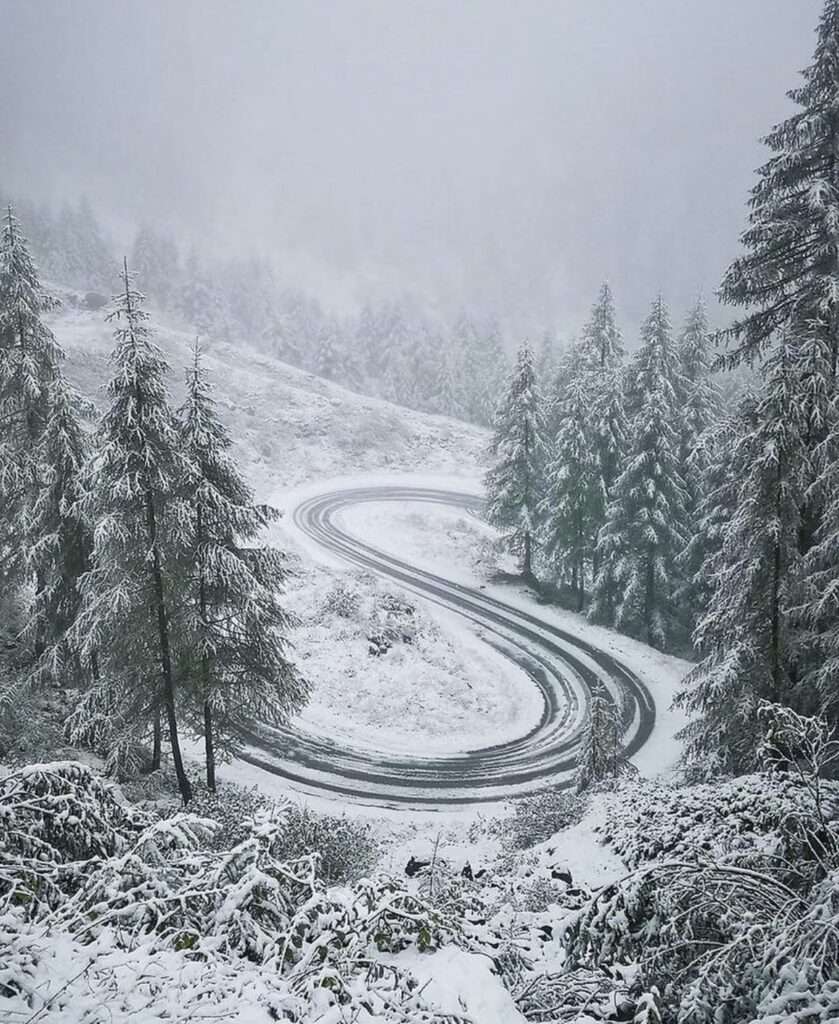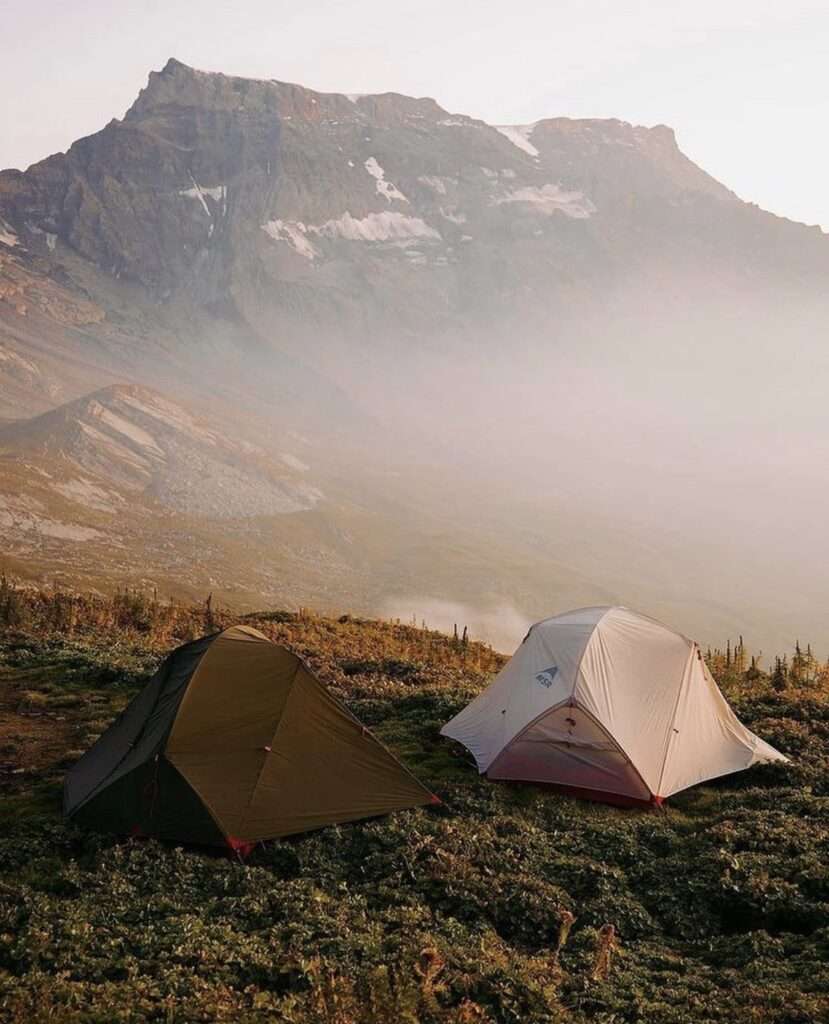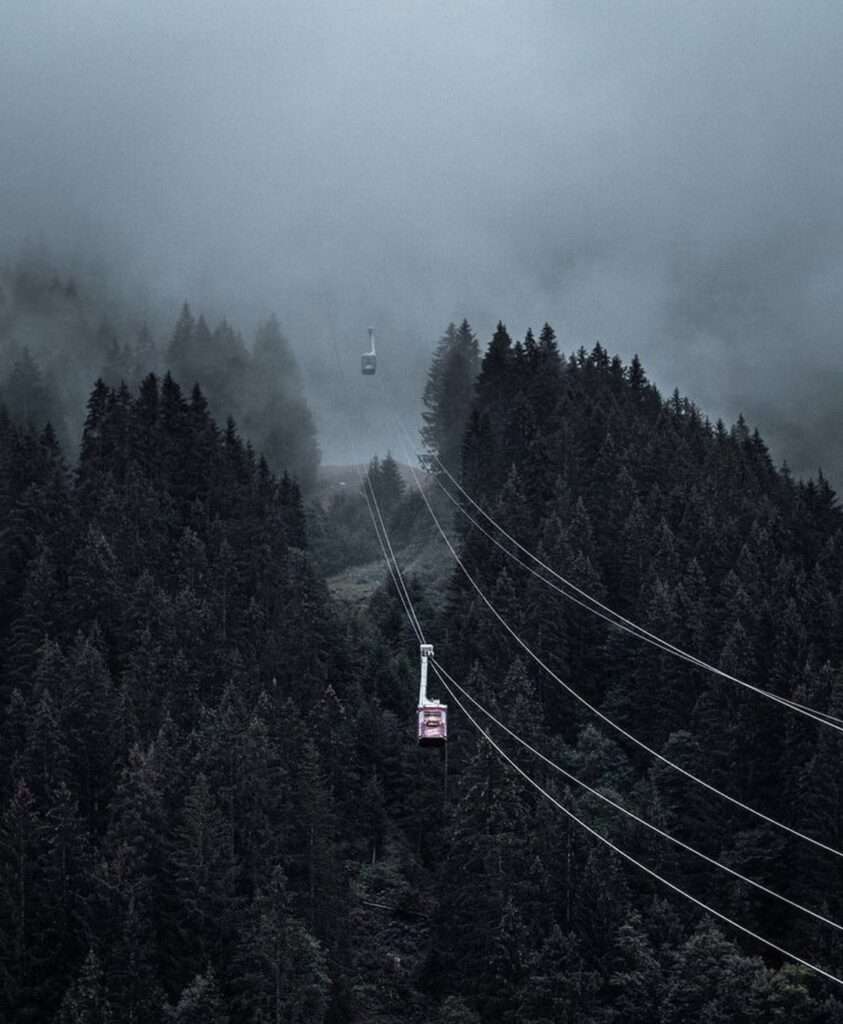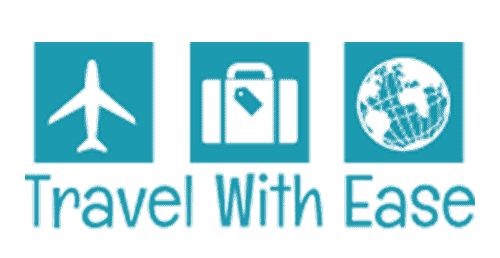One of the most expensive countries in Europe, Switzerland is often skipped over by budget travelers.
Visiting Switzerland is not cheaper. Before you even get out of the train station/airport, you’ll begin to wonder “how the heck did I spend so much money already?!”
Even when I was backpacking Switzerland, I found myself constantly trying to find ways to save money.
At the time, while it is not a cheap destination, Switzerland is one of the most beautiful places on earth.
The country is home to shimmering lakes, picturesque mountains (hello Alps!), tiny walled medieval towns, soaring peaks, endless green fields you want to run through, delicious chocolate, icnredible beer, and friendly, welcoming people.
Everything runs on time here, the country is safe, and everyone is super nice. I loved my time traveling around Switzerland.
The country rocks no matter what time of the year you visit (summer hiking, winter skiing).
To help lower your costs, use this travel guide to Switzerland to help you plan your trip and save money!

Other Things to See and Do in Switzerland
1. Join in the Fasnacht Spring Carnival
This festival in Basel is a three-day party that welcomes in the warm weather and takes place annually on the Monday following Ash Wednesday. It’s something that’s highly anticipated by both tourists and locals, and it’s definitely Switzerland’s most popular festival. Fasnächtlers dress in elaborate costumes to hide their identities and parade around town with “cliques” (bands playing basler drums and piccolos). All the bars and restaurants in town remain open throughout the entire three days. Everyone here is in a good mood!
2. Explore Geneva
As the third largest city in Switzerland, Geneva offers spectacular views of the city’s lake (Lake Geneva), the world’s largest fountain, the UN, a historic city center, and a collection of international restaurants to satisfy anyone’s palate (thanks to the UN buildings in town). While you’re here make sure you check out the Geneva’s Art and History Museum or the Red Cross and Red Crescent Museum. There are 40 museums here in total!
3. Hike Mt. Pilatus
Located right outside the city of Lucerne, this beautiful mountain has breathtaking views of the alps. From the city, you can take a cable car to the top or (better yet) hike its trails to the top to look out over the Swiss Alps. There are some easier trails around the northern side of Pilatus, as well as other attractions in the summer months such as a ropes course.
4. Picnic at the Rhine Falls
Pack a picnic lunch and look out at your view of Europe’s largest waterfall. If you hop on a boat tour you can get extra close to the giant rock in the middle of the falls, and you’ll also experience the Rhine Falls Basin. Close by in the town of Schaffhausen, you’ll find a medieval castle which also houses a hostel for cheap but interesting accommodations.
5. Explore St. Gallen
The seventh largest city in Switzerland, St. Gallen boasts beautiful museums, colorful murals, and one-of-a-kind architecture. It doesn’t receive as much tourist traffic as the other cities and regions around the country, but it’s a fun town full of students and you’re likely to befriend a few locals during your visit. Must-do: visit the Baroque cathedral and the Abbey Library, which is home to nearly 170,000 documents. Some are hand-written and over a thousand years old!
6. Visit the Old Villages
Visit the Graubunden area of the country, where you’ll find villages with houses dating back to the 13th century. Here they also speak an ancient language called Romanch, which has died out everywhere else in the country and the locals take great pride in keeping the tradition alive. Of course, it’s a haven for nature lovers – there are 615 lakes and 150 valleys in the region. Visiting here is a true Swiss Alpine experience.
7. Have a romantic time in Montreux
With a picturesque castle (Chateau de Chillo) lying at the edge of a lake, this area makes for a pretty romantic destination. Tour the castle, which dates all the way back to the 12th century and inspired the likes of Lord Byron, Mary Shelley, and more. The town was also the home of Freddie Mercury and there is a statue here in his honor. It costs 12.50 CHF ($12.55 USD) to visit the castle.
8. Discover rural culture in Appenzell
This small village of 7,000 lies in the canton of Appenzell Innerrhoden. There are no cars and the village has upheld much of its local traditions and culture, including dance and folk music. It’s an incredibly picturesque little town, with frescoed buildings and narrow alleyways. Its location near the foot of the Alpstein mountains makes it a great gateway for participating in summer and winter outdoor activities, like hiking and skiing. Take the Appenzell Railway to Wasserauen, and explore the fascinating prehistoric Wildkirchli caves (inhabited around 40,000 years ago).
9. Visit Lucerne
You can’t get much more of a typical Swiss destination than Lucerne. Located on the beautiful Lucerne Lake, the city offers a wonderful combination of urban life and nature. Spend some time in the old town, especially Weinmarkt, surrounded by medieval guildhalls and decorative buildings. Cross Chapel Bridge, the world’s oldest surviving truss bridge, and pay attention to the 17th-century ceiling paintings showing events from Lucerne’s history.
Switzerland Travel Costs
Accommodation
Hostel dorms average 30 CHF ($30 USD) per night, but in some major cities, they can run as high 50 CHF ($50 USD). Private hostels rooms range from 80-120 CHF ($81-121 USD) a night for rooms that sleep two. Most hostels offer free linens, WiFi, and some include breakfast. Hotels are super expensive. You should expect to spend between 90-120 CHF ($90-121 USD) per night for the most basic of rooms. For something a little nice and more spacious, look closer to 150-200 CHF ($151-202 USD) per night. A much better alternative to hotels is Airbnb, where a shared room in someone’s house typically costs 30 CHF ($30 USD) a night and an entire apartment is about 60 CHF ($60 USD).
Food
Although eating out is very pricey (easy comparison: Starbucks coffee is 8 CHF/$8 USD while McDonald’s is 15 CHF/$15 USD), you can keep your spending in check by going to the local supermarkets and buying your own groceries. You’ll spend around 130 CHF ($131 USD) per week for basics like pasta, rice, eggs, fruits and vegetables or pre-made meals between 5-9 CHF ($5-9 USD). Bars and cafés are the cheapest food option, cost about 9-15 CHF ($9-15 USD) for a lunch. Restaurants with table service are around 20 CHF ($20 USD) for lunch and 40 CHF ($40 USD) for dinner (starter, main, and drink), prices go up from there and I saw some Italian restaurants asking 35 CHF ($35 USD) per main course! That’s expensive pasta!. You’ll typically find pizzas for around 20 CHF ($20 USD) in a restaurant. If you’re dining out (but still trying to stick to a budget), you’ll spend an average of 45 CHF ($45 USD) a day. From there, the sky is the limit! For people who want to cook and eat the occasional meal out, expect to spend around 20 CHF ($20 USD) per day.
Activities
Most museums cost around 10 CHF ($10 USD) to enter (if you are a student, you’ll save 2-4 CHF ($2-4 USD) off the price of your admission (be sure to have your student ID with you). All day hiking excursions or adventure activities begin around 70 CHF ($70 USD). Paragliding costs about 160 CHF ($161 USD) and a bit more in the winter. Ski and snowboard lift tickets can cost anywhere from 27-75 CHF ($27-75 USD) per day (depending on the mountain), and 6-day passes cost 4-5 times the price of the daily pass, so if you’re staying for a while, buy that.

Backpacking Switzerland Suggested Budgets
Those backpacking through Switzerland, budget at least 70-108 CHF ($70-110 USD) per day. This is a suggested budget assuming you’re staying in a hostel, cooking most of your meals or eating fast food, and using local transportation or mostly walking. This is also assuming you’re enjoying plenty of free nature, or an occasional museum.
If you Couchsurf, cook all your food, and rideshare, you could probably do the country between $50-70 USD per day. It would be a tight budget but it would be doable.
For a mid-range budget of 230-270 CHF ($235-275 USD) per day, you’ll get to eat mostly fast food meals, stay in private hostel rooms, do some intercity trips, and opt for a few outdoor excursions or other attractions.
For a luxury budget of 490+ CHF ($500+ USD) per day, you can afford to eat out at restaurants, stay in nice hostels, have more flexibility with intercity travel, and enjoy more expensive activities (like multi-day ski passes or tours).

Switzerland Travel Guide: Money Saving Tips
Switzerland is a very expensive country. There’s no hiding that fact. But there are plenty of ways to save money in the country so you don’t go bankrupt while visiting. Here are some very helpful, high value ways I lowered my costs:
Have an ISIC Card
To save 20-50% on the cost of admission to museums and other tourist attractions, be sure to present a valid student card. The ISIC is typically accepted in places where a foreign student ID is not.
Use Couchsurfing
It’s a service that lets travelers stay with locals for free. It was a lifesaver that allowed me to keep my costs down the most. Since a lot of travelers use this service, make your requests for hosts early.
Use BlaBlaCar
Transportation is very expensive, even more so than accommodation. Most intercity trains are around 50 CHF ($50 USD). That adds up too quickly! Instead, use the ride-sharing website BlaBlaCar to avoid the trains and meet locals. A word of caution: Be advised that many rides cancel. I had three rides cancel on me at the last minute (and one guy who just failed to even show up), so the service requires some flexibility. But when it works, it’s awesome.
Use hotel points
Hotel reward points are a lifesaver in an expensive destination, where even hostels are expensive and the chance of getting a Couchsurfing host is small. Rack up a few hotel points by travel hacking before your trip and burn them while you stay in the country. Most hotel sign-up bonuses are around 60,000 points, which is worth about five nights at the chain hotels like Hilton, Marriott, or Starwood (just make sure you stay at their cheaper properties. Sorry, no W for you!).
Don’t drink
Drinking will not be cheap here. Most beers are around 8 CHF ($8 USD). (Plus, who wants to hike while hung over?) Most wines are between 10-25 CHF ($10-25 USD) a bottle. If you must drink, stick to hostel bars where you can enjoy 2-for-1 happy hours and cheap drinks for around 5 CHF ($5 USD) or buy your beers at grocery stores for as little was 2 CHF ($2 USD).
Cook
With sit-down restaurants costing around 40 CHF ($40 USD) per meal per person, eating out in Switzerland can be very costly, so buy your groceries. A week’s worth of food (bread, pasta, rice, eggs, vegetables, cheese, deli meats for sandwiches, and some assorted fruit) will cost you 75-100 CHF ($75-101 USD). The major supermarkets are Migros, COOP, and Spar. COOP is the most expensive.
Go veggie
Meat is expensive in Switzerland. Every Swiss resident or expat I talked to told me about how they limit their meat consumption because it costs so much. Stick to veggies and avoid buying meat for your meals (especially beef). While I was trolling supermarkets and butchers for grocery prices (travel writing is glamorous, huh?!), I found a pound of meat was 12-14 CHF ($12-14 USD). At that price, stick to deli meats for protein!
Use lunch specials
If you are going to eat out, do so during lunch when most lunch specials at cafes and restaurants cost around 10-19 CHF ($10-19 USD). Moreover, stick to the ethnic restaurants like Chinese, Middle Eastern, Indian, or Thai for the best deals and biggest portions (and closer to that 10 CHF/$10 USD price). Lunch specials are a great way to get a lot of bang for your buck and to enjoy the dinner menu but at a cheaper set menu price.
Bring a refillable water bottle
At 2-4 CHF ($2-4 USD) a bottle, that’s a lot of money spent on water after a few days. The water in Basel is safe to drink, so refill your bottle before you go out to save money.
Book your trains early
While a train ride is a cheaper way to travel than the plane, you can get even cheaper rates by booking your train ticket early. Swiss Rail also offers one-day and weekend group passes to look into.
